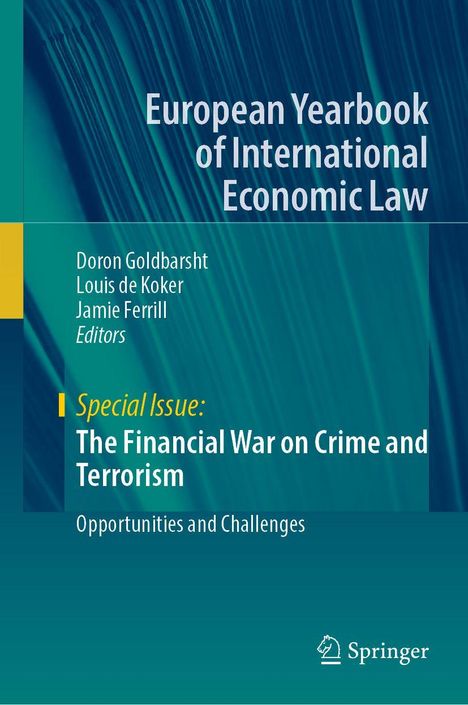The Financial War on Crime and Terrorism, Gebunden
The Financial War on Crime and Terrorism
- Opportunities and Challenges
(soweit verfügbar beim Lieferanten)
- Herausgeber:
- Doron Goldbarsht, Louis de Koker, Jamie Ferrill
- Verlag:
- Springer, 01/2026
- Einband:
- Gebunden
- Sprache:
- Englisch
- ISBN-13:
- 9783032063595
- Artikelnummer:
- 12407544
- Umfang:
- 332 Seiten
- Gewicht:
- 662 g
- Maße:
- 241 x 160 mm
- Stärke:
- 24 mm
- Erscheinungstermin:
- 3.1.2026
- Hinweis
-
Achtung: Artikel ist nicht in deutscher Sprache!
Klappentext
The financial crime landscape is rapidly evolving, and so too have government responses over the past decade. This book, a product of the Financial Integrity Hub (FIH), critically examines global vulnerabilities and proposes innovative solutions to combat illicit activities. It addresses the rising sophistication of financial crimes, fuelled by technological advances, globalisation, human fallibility, and regulatory gaps.
The book highlights the systemic nature of financial crime, connecting areas such as AML leadership challenges, exploitation of the gaming sector, AI in crime detection, wildlife trafficking financing, and opportunities in public-private and private-private information sharing. It explores how criminal activity can shift to exploit weaknesses in global systems, from corruption and godfatherism to state capture, underscoring the need for proactivity, along with suitable legal frameworks and enforcement.
Chapters explore the ethical dimensions of financial crime, including the role of professional facilitators, and highlight gaps in current legal frameworks, advocating stronger whistleblower protections, transparency in beneficial ownership, and adaptable regulations.
Through case studies and analysis, this book equips practitioners, policymakers, and academics with the knowledge to better prevent, detect, and mitigate financial crime, contributing to a more secure, transparent global financial system. It is essential reading for professionals across finance, law enforcement, regulation, and academia seeking to understand and mitigate financial crime risks.
Chapter "Geopolitcal of State Capture: Systemic Corruption as a Professional Service" is available open access under a Creative Commons Attribution 4.0 International License via link. springer. com.

